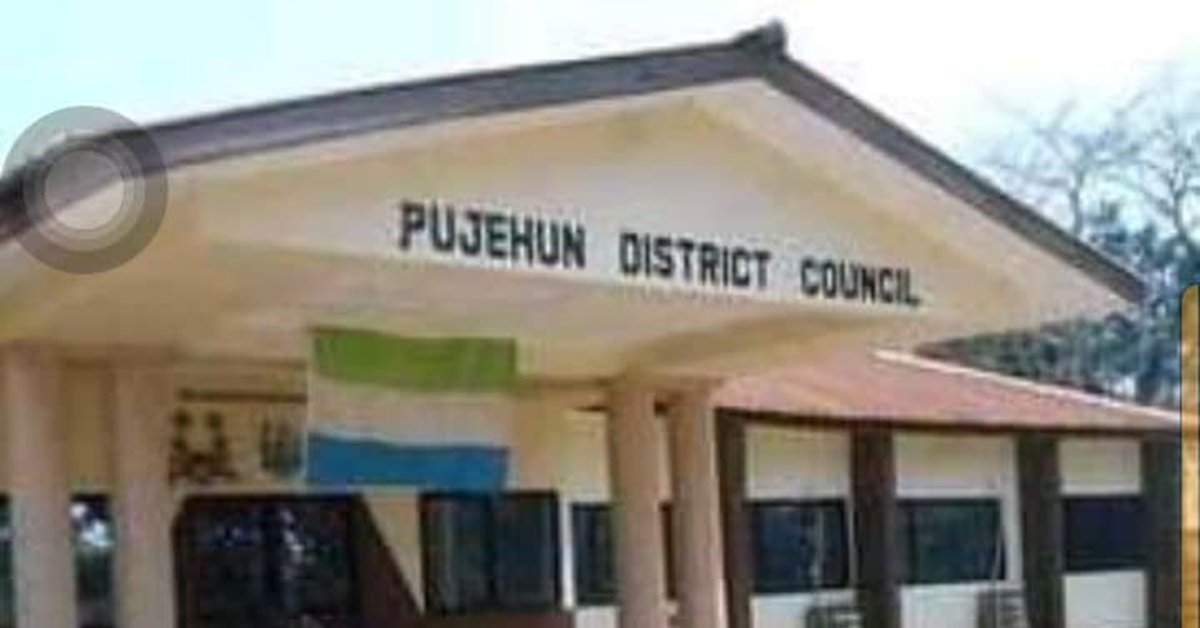A team from UNICEF, including WASH (Water, Sanitation, and Hygiene) expert, recently met with key staff at the Chief Administrator’s office to discuss ongoing and future WASH activities in Pujehun district.
The meeting was chaired by the Deputy Chief Administrator, Jaiah Tewoh Gogra who warmly welcomed the UNICEF by registering his happiness over the gesture saying they are ready to cooperate and monitor the successful implementation of the work and ensure that the work is done in the best interest of the district.
Giving the purpose of their visit. Mr. Mario, the WASH expert, took the lead in outlining UNICEF’s objectives, which centred around the impact of climate change on Sierra Leone and potential collaborations with the District Council on disaster risk reduction.
He informed the council that UNICEF has already initiated WASH programs in Pujehun District, with two Chiefdoms – Sowa and Pejeh- being selected by the Ministry due to the availability of baseline data. He noted that out of the 190 Chiefdoms in Sierra Leone, these two were chosen as part of the initial phase, while the remaining Chiefdoms without baseline data will be considered in the subsequent phases.
So far, a total of 17 Chiefdoms have received WASH facilities, and an additional 4 are currently in progress, bringing the total to 21 Chiefdoms. The wash expert further emphasized that Pujehun District will continue to benefit from these projects until all 190 Chiefdoms across the nation are covered.
The selection of Sowa and Pejeh Chiefdoms was made in collaboration with the District Health and Sanitation Team (DHTT), the WASH engineer, and the Environmental Social Safety Officer. The project includes the installation of water facilities with a capacity of 30,000 cubic liters and a distribution tower. Moreover, Primary Health Units (PHUs) in these Chiefdoms will receive sanitation facilities, such as male and female toilets, laundry, and showers.
Importantly, local schools will also benefit from the WASH project, with the installation of separate toilet facilities for boys and girls, as well as handwashing stations.
To further enhance community engagement and sustainability, the CLTS (Community-Led Total Sanitation) component of the project will involve the establishment of WASH committees, Village Savings and Loans (VSL) groups, and marketing groups. These initiatives aim to train the community on sanitation marketing and increase their knowledge on proper sanitation practices.
In conclusion, Mr. Mario emphasized the importance of the Council’s active monitoring of the project to ensure efficiency and quality. The monitoring process will be carried out by the District Health Management Team (DHMT), the Council, and the WASH engineer, with verification from the national task force in Freetown.
This collaborative effort between UNICEF and the Pujehun District Council represents a significant step forward in improving the WASH infrastructure and promoting sustainable sanitation practices in the region, ultimately enhancing the overall quality of life for the residents of Pujehun District.











